The Bikeriders: Austin Butler on riding Harleys, the appeal of rebels and feeling all your emotions
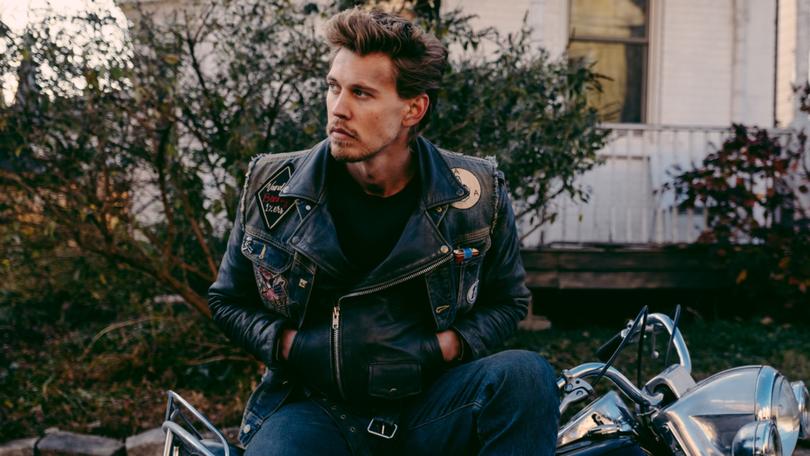
Austin Butler is known for going deep into his characters. After he played Elvis Presley in Baz Luhrmann’s feverish and kaleidoscopic biopic, Butler struggled to shake off the legendary singer’s spirit – and his voice.
So, it’s no surprise that after The Bikeriders, Butler’s new film in which he plays a member of a 1960s motorcycle club, the actor thought about buying a ranch in Wyoming or somewhere off-grid.
He definitely bought some motorbikes – a 1966 Harley Davidson, a newer Harley and a Triumph.
Sign up to The Nightly's newsletters.
Get the first look at the digital newspaper, curated daily stories and breaking headlines delivered to your inbox.
By continuing you agree to our Terms and Privacy Policy.Filmmaker Jeff Nichols adapted The Bikeriders from gonzo photojournalist Danny Lyons’ photo book, compiled from Lyons’ years spent with the Outlaws while they were still these romantic renegades and before it was a gang involved with drugs, violence and the seedier parts of life.
The Bikeriders is fictionalised (the club is called the Vandals) but the rebellious spirit of the open road, the lack of social pretensions and that camaraderie remain.
Butler plays Benny, a deeply loyal young man straining under the pressures of what other people are trying to put on him. His wife Kathy (Jodie Comer) wants him to quit and settle down but his friend Johnny (Tom Hardy) wants him to take over the Vandals.
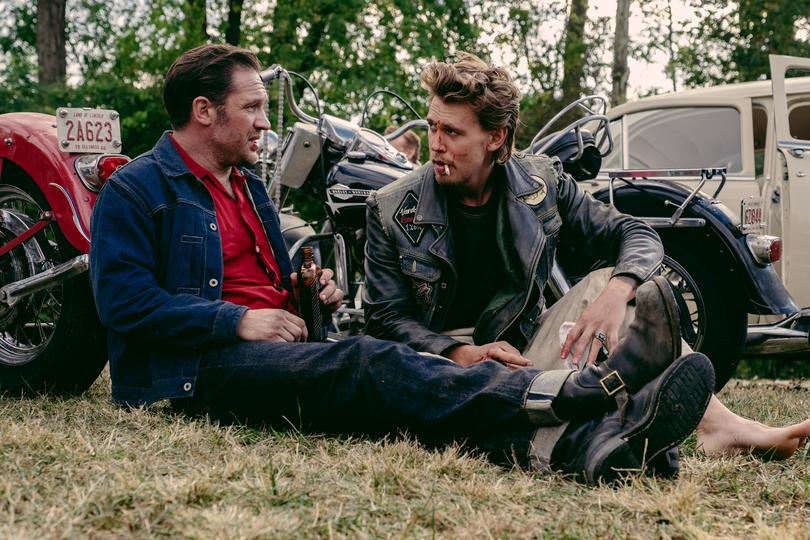
Benny doesn’t want to fulfil someone else’s vision of him. He just wants to be free.
“I see him as sort of like a wild animal,” Butler explains to The Nightly. “When you watch a wolf or a bobcat, they’re not thinking about what anyone else thinks of them. It’s very primal. Benny is a primal person.
“To use that same analogy, he’s like a cat. They’re going to come up to you when they want to, and they’ll rub up against you and they’ll purr and they’ll play with you. But if you try to impose your will on it, it’s going to scratch out. It’s going to leave. Benny is like that.”
Benny is something of a cypher to everyone else (perhaps that’s why it was easy for others to project onto him what they want him to be), and Comer’s character remarks she never saw him cry.
Many of the reactions to The Bikeriders have pointed to the film’s take on bygone masculinity, but Butler says the word wasn’t used during production. But the question has come up so often, he feels as if he needs to write an essay on it just to understand his own feelings about it.
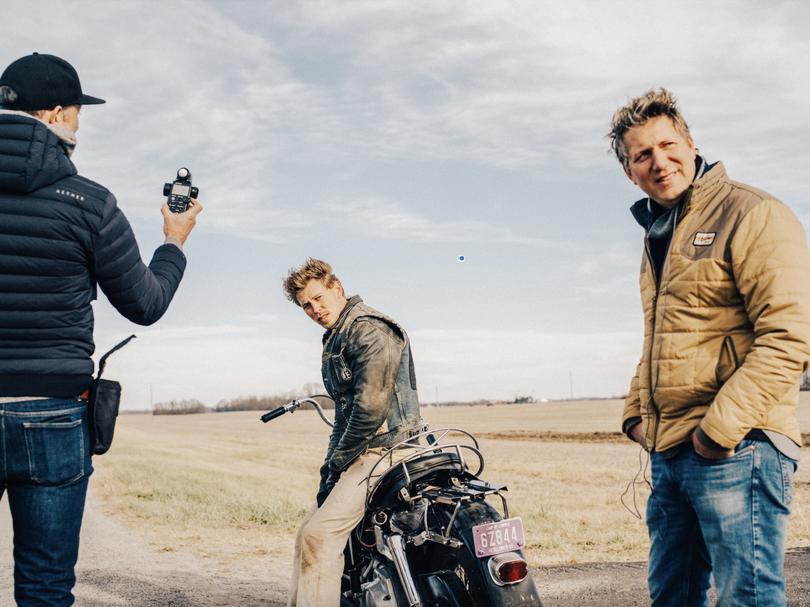
Butler thinks deeply about his work and his artistry, and his connection to the projects he takes on. While he hasn’t landed on Benny’s place in the tapestry of either 1960s or modern masculinity, he does think about the character’s vulnerability, and his eventual willingness to share that with someone else.
“It’s so beautiful when somebody who might have calluses over their heart, through whatever childhood or epigenetic trauma, that we wall up our hearts,” he says.
“And when you’re finally able to crack through and feel all of your emotions, all of your humanity, and all of your love, sometimes it takes grief in order to understand the unfathomable depth of your own love, and while that can be searingly painful, it can actually be a beautiful connection to your humanity.”
As a character, Benny comes to stand in for the idealised version of this slice of anti-establishment Americana that still persists.
When he shot the book, Lyons’ goal was to romanticise these outsiders on the margins of polite society, where they have their own code and morality but one that wasn’t going to align with the increasingly corporatised and suburbanised country that was emerging out of the post-WWII economic boom.
If he had a time machine Butler would be interested in taking a stroll through that moment. He acknowledges the good fortune of modern-day conveniences, but there’s an envy for “a time when there weren’t cell phones, and life was a little slower, and the feeling of community was tangible”.
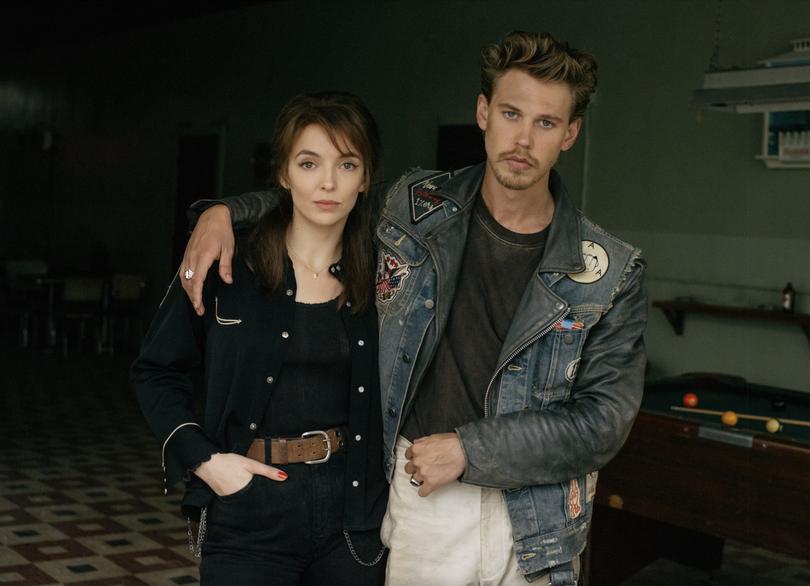
Butler makes the comparison between humans and animals. While we’re domesticated in different ways, there’s still that primality inside, untamed, waiting to be unleashed.
“A lot of us have that feeling of freedom, of getting on a horse and riding, like modern-day cowboys in a way.
“There’s also the feeling that a lot of us have when you get away from the city, and suddenly you feel free in a moment. I’ve had that experience when you’re going through the daily stresses of life and then suddenly you’re camping, you’re in nature or you’re on a motorcycle, or you have that experience where you’re on the edge.
“Suddenly, everything is put into perspective, and it shifts the paradigm of your life in a way.”
Growing up, Butler’s mother told him he wasn’t allowed to ride motorcycles after his sister got into an accident when she first got her licence. What his mum didn’t know was Butler’s dad used to sneak him to a carpark to teach him how to ride.
He wasn’t a hardcore biker. When he was living in Australia during the production of Elvis, stretched out thanks to COVID lockdowns, he rode a bit with a friend. But six months out from the start of filming on The Bikeriders, he committed to riding every day.
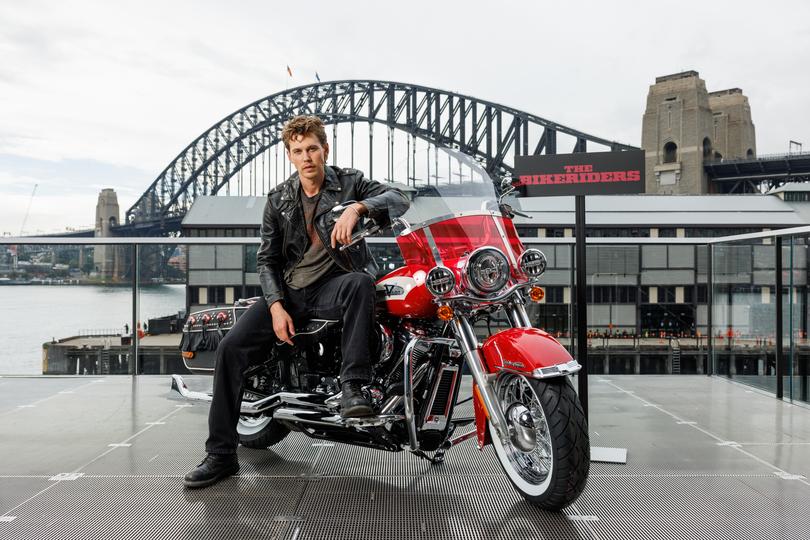
The old bikes feel different to the new ones. “It’s very visceral in a way,” Butler says. “You feel more connected to the machinery. Even when you change gears, it’s not smooth. You feel the gears click into place and you feel like you’re a part of it, like you’re one with the machine. It’s awesome.”
It’s been 18 months since The Bikeriders wrapped filming, and just like his previous projects, Butler couldn’t leave it all behind.
When he hops on that 1966 Harley he bought, does he feel like himself or does he feel like Benny?
“I don’t know,” he says with a wry smile. “Benny also feels like Austin. It’s all parts of myself. So, I guess it feels like a little bit of both.
“It’s an interesting thing when you’re acting and you’re only ever working with yourself, really. You’re turning up bits of yourself, and you’re turning down other bits.”
The Bikeriders is in cinemas on July 4

